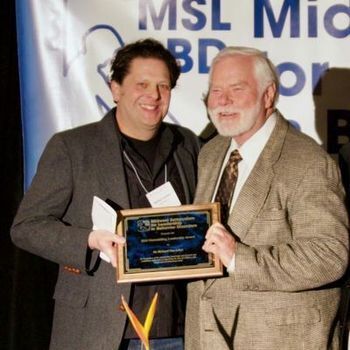Past MSLBD Award & Stipend Recipients

2024 Outstanding Leadership Award: Dr. Richard Van Acker (left) and Dr. Michael Couvillon (right)
The Midwest Symposium for Leadership in Behavior Disorders recognizes individuals for the following awards.

2023 Outstanding Advocacy Award: Alexis Walker, Greenville County Schools, Greenville, South Carolina, with colleague, Dr. Shanna Hirsch
To review the criteria and nomination forms for these awards, select the title of the award or stipend.

